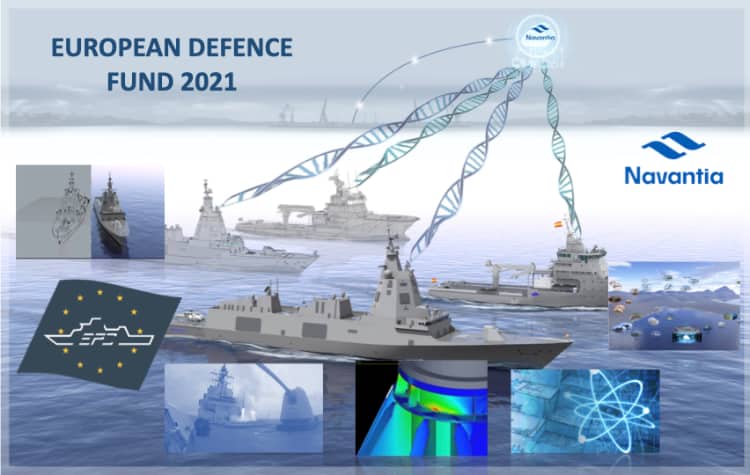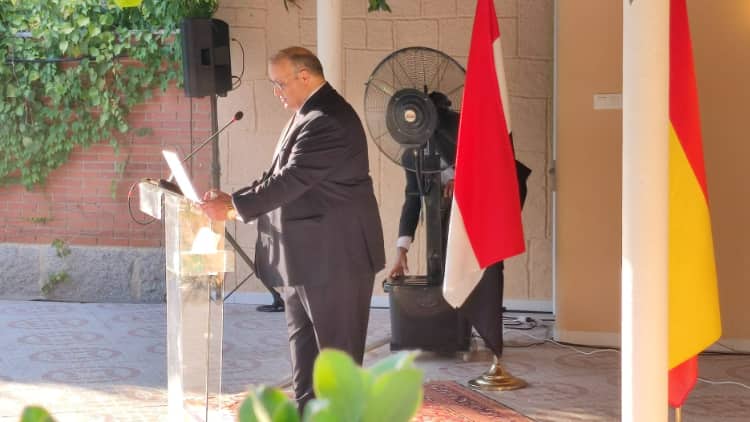The Diplomat
Six high-tech projects in which Navantia participates have received support from the European Defence Fund (EDF) in its 2021 call for proposals, the results of which were published on Wednesday by the European Commission.
The overall amount of the initiatives totals more than 265 million euros and Navantia is participating in consortium with other large companies, SMEs, universities and European technology centres.
The public company, which has a solid presence in European industrial and institutional forums, thus reinforces its role as a driving force for the Spanish naval and defence sector in Europe and strengthens its projection by establishing collaboration mechanisms with the leading defence industry in Europe.
The award of these projects will allow Navantia to consolidate its leadership in key strategic areas for its business, such as the digitalisation of naval platforms or the development and integration of unmanned vehicles and new generation weapons. Progress is also being made in the establishment of alliances that will enable the collaborative development of combat ships that meet the needs of European navies.
The aim of the EDF is to strengthen the technological and industrial base of European Defence, with collaborative projects that will stimulate competitiveness and its own capacity for innovation, favouring strategic autonomy and freedom of operation, and providing the Armed Forces with the military capabilities necessary to face the challenges of future conflict scenarios.
In these projects, according to Navantia, the participation of SMEs, Technological Institutes, Universities and the support of the Ministries of Defence is of vital importance to ensure coherence and homogeneity with national needs and to improve the efficiency of technological developments and avoid redundant efforts between companies in the sector.
The EDINAF project, in which Navantia plays the leading role, focuses on the development of the reference architecture for a digital ship, favouring the standardisation of interfaces without losing sight of the flexibility, scalability and universality of the solution.
In conjunction with the EDINAF project, dTHOR aims to establish a common framework and associated standards to improve the monitoring of the ship’s structure through sensorisation and massive data exchange. Knowledge of the actual condition of the ship’s structure at all times will allow optimisation of maintenance following a condition-based maintenance scheme and will advise the crew on the actual performance of the structure during the whole life cycle.
The European Patrol Corvette (EPC) project will develop the initial design phase of a modular, flexible, green, interoperable and innovative corvette including the maturation of innovative technologies that will provide the necessary capabilities for this new class of vessels. The project is supported by the PESCO EPC Programme in which the Ministries of Defence of France, Italy, Greece and Spain are participating.
Navantia forms, together with Fincantieri and Naval Group, the main group of partners and participates in the technical activities of the project in close collaboration with the Spanish Ministry of Defence and the rest of the country’s defence industry.
The HYDEF proposal focuses on the research and definition of the concept of a European interceptor against hypersonic threats from both ballistic missiles and supersonic vehicles. The consortium is led by the Spanish company Sener and the participation of Navantia, the only shipyard in the project, guarantees the future integration of the interceptor system in a naval combat platform.
The EDOCC project aims to provide the EU and the Member States with a “multi-domain combat cloud”, a virtual platform based on cloud technologies that will increase the interoperability, efficiency and resilience of military operations. The consortium is led by Airbus Germany and Navantia’s role is to ensure the interoperability of the developed solution with naval platforms.
Finally, the Q-SING proposal, focused on developing an inertial navigation system based on interoperable quantum technology and gravimetric vector, aims to be an alternative to satellite navigation systems. Navantia’s contribution is based on its in-depth knowledge as a developer of naval navigation systems and its capacity as a designer and integrator of naval systems.







